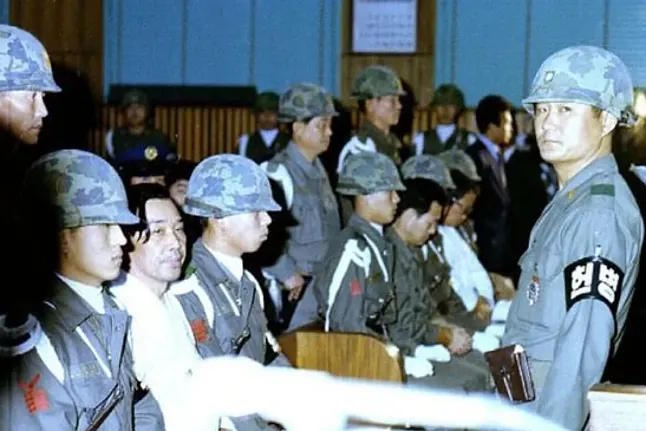Many in South Korea wonder about the sense of judging a person who cannot stand trial because he died over 45 years ago. Others, however, argue that, even though the protagonist is not present, it is important to hold the trial, or rather repeat a process that was experienced decades ago, to clear his name.
Kim Jae-gyu, former head of the Seoul spy service, was sentenced to death and hanged in May 1980 for the assassination of President Park Chung-hee, a former army general who seized power in a military coup in 1961 and ruled with an iron fist for 17 years.
A year before being executed, at 7:40 p.m. on October 26, 1979, Kim shot Park while they were dining at the Central Intelligence Agency of Korea (KCIA) in Seoul. He also took the life of the leader's bodyguard, Cha Ji-chul. When news of the assassination spread throughout the country, there was much disbelief because Kim, theoretically, had been a loyal friend and ally of Park during the dictatorship, even serving as his personal bodyguard at times.
There were South Koreans who rejoiced at the leader's death because they considered Park a tyrant. But there were also many mourning protests because a part of the country supported him due to the successful economic reforms that had brought rapid economic growth.
After the incident, South Korea entered a period of political turmoil that ended with the election of Chun Doo-Hwan as president in 1980, who led another military regime until the popular uprising that pushed towards the desired democracy in 1987.
Earlier this year, a court in the capital decided to retry Kim after his family had been fighting for years for him to not be remembered as a traitor, but as a patriot who sacrificed himself to lead South Korea towards freedom.
This Wednesday, in the Seoul High Court, a trial has begun with some of Kim's relatives present and with the public opinion highly polarized on this matter. Additionally, this process coincides with that of former President Yoon Suk Yeol, who is also being tried for treason after the martial law he declared in December 2024, which briefly returned the country to authoritarianism.
Kim's family demands that the charge of insurrection against him be dropped, for which he was sentenced to death and executed. The court declared a few months ago that there were grounds for a new trial after an investigation determined that the former head of South Korean spies had been tortured and that the usual procedures were not respected in the original trial.
"That 1980 trial was a joke. Witnesses were interrogated outside the courtroom, without the defense team's participation, and the transcripts of those interrogations were never formally presented," said An Dong-il, the lawyer who led Kim's initial defense.
The family's legal team argues that there is sufficient evidence that the first trial was not transparent and that the then ruling military junta influenced the death sentence handed down by the judges.
